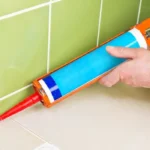Windows are essential features of any home, influencing not only the aesthetics but also the comfort, energy efficiency, and security of your living space. Choosing the right windows requires careful consideration, as it can significantly impact your home’s appearance and functionality for years to come. With so many styles, materials, and technologies available, it’s important to weigh all options before making a purchase.
If you’re planning to install energy-efficient windows, it’s worth consulting with professionals like double glazing installers in Romford to ensure the highest quality results. Let’s explore the critical factors to consider when buying windows for your home.
1. Understand Your Needs
The first step in selecting the right windows is to evaluate your specific requirements.
- Purpose: Are you replacing old windows, upgrading to energy-efficient ones, or installing windows in a new construction? Your purpose will dictate the type and features of the windows you need.
- Climate Considerations: Your local climate plays a significant role. For example, if you live in a colder area, windows with double or triple glazing are essential to maintain insulation and reduce energy bills.
- Aesthetic Preferences: Windows are a prominent architectural feature, so consider how their design complements your home’s style.
2. Choose the Right Window Type
There are various types of windows, each with unique advantages and applications.
- Casement Windows: These are hinged at the side and open outward, offering excellent ventilation and unobstructed views.
- Sliding Windows: Ideal for spaces with limited opening areas, sliding windows are easy to operate and space-efficient.
- Bay and Bow Windows: These add character to your home and create a sense of spaciousness by projecting outward.
- Double-Hung Windows: With two movable sashes, double-hung windows are a popular choice for traditional homes.
3. Material Selection
Window frames are made from different materials, each with its own pros and cons.
- uPVC (Unplasticized Polyvinyl Chloride): Affordable, low-maintenance, and durable, uPVC is a common choice for modern windows.
- Aluminum: Sleek and strong, aluminum frames are ideal for contemporary designs but may lack insulation compared to other materials.
- Wood: Traditional and elegant, wooden frames offer great insulation but require regular maintenance to prevent rotting and warping.
- Composite: Combining materials like wood and aluminum, composite frames provide excellent durability and insulation.
4. Consider Energy Efficiency
Energy-efficient windows can drastically reduce heating and cooling costs, making them a worthwhile investment.
- Double or Triple Glazing: These windows consist of two or three glass panes separated by an insulating gas layer, minimizing heat transfer.
- Low-E Glass Coatings: Low-emissivity coatings reflect heat back into your home, improving thermal performance without compromising natural light.
- Frame Insulation: Look for frames with thermal breaks or insulating materials to further reduce energy loss.
Consulting experts like double glazing installers in Romford ensures you select the best energy-efficient options tailored to your needs.
5. Pay Attention to Security
Windows are often a target for burglars, so it’s essential to choose secure designs.
- Locking Mechanisms: Opt for windows with multi-point locking systems or advanced locking technology for added safety.
- Reinforced Glass: Laminated or tempered glass provides enhanced strength, making it more difficult to break.
- Window Placement: Consider the location of windows and ensure vulnerable areas, like ground floors, are equipped with robust security features.
6. Think About Noise Reduction
If you live in a busy area or near a main road, noise-reducing windows can significantly improve your home’s comfort.
- Acoustic Glass: Specially designed to minimize sound transmission, acoustic glass is a great option for noisy environments.
- Double Glazing: The insulating gap between the glass panes in double glazing helps reduce external noise.
- Proper Sealing: Ensure windows are correctly sealed to prevent noise leakage.
7. Evaluate Durability and Maintenance
Windows are a long-term investment, so durability and ease of maintenance are key factors to consider.
- Weather Resistance: Choose windows that can withstand your local weather conditions, such as heavy rain or extreme temperatures.
- Maintenance Requirements: Some materials, like uPVC and aluminum, are virtually maintenance-free, while wood requires periodic care.
- Longevity: High-quality windows with robust materials and construction will last for decades, offering better value for money.
8. Understand Installation Requirements
Even the best windows won’t perform well if they’re not properly installed.
- Professional Installation: Work with experienced installers who are familiar with your chosen window type and material. Poor installation can lead to air leaks, water infiltration, and reduced energy efficiency.
- Warranty and Service: Ensure the installation comes with a warranty and after-sales service for peace of mind.
9. Compare Costs and Budget Wisely
Window prices can vary widely based on factors like material, glazing, and brand.
- Initial Cost vs. Long-Term Savings: While energy-efficient windows may cost more upfront, they often pay for themselves over time through lower utility bills.
- Obtain Multiple Quotes: Comparing prices from different suppliers and installers helps you find the best deal without compromising quality.
- Financing Options: Some companies offer financing plans to make high-quality windows more affordable.
10. Check Compliance with Building Regulations
In the UK, windows must meet specific building regulations to ensure safety, energy efficiency, and ventilation standards.
- U-Value Requirements: The U-value measures a window’s thermal performance. Lower values indicate better insulation.
- Ventilation Standards: Ensure your windows provide adequate airflow, especially in areas like kitchens and bathrooms.
- Fire Safety: Certain windows must meet fire safety requirements, such as being large enough to serve as emergency exits.
11. Assess Aesthetic Appeal
The right windows can enhance your home’s curb appeal and interior design.
- Style Matching: Choose windows that complement your home’s architectural style, whether traditional, modern, or eclectic.
- Color Options: Many window frames come in a variety of colors and finishes, allowing you to customize their appearance.
- Hardware Choices: Pay attention to details like handles, hinges, and locks, which can add character to your windows.
12. Seek Professional Advice
Choosing windows can be overwhelming, especially with so many options available. Consulting professionals can simplify the process and ensure you make informed decisions.
- Specialist Installers: Professionals like double glazing installers in Romford can provide expert guidance on materials, designs, and energy-efficient solutions.
- Showrooms and Demos: Visiting a showroom or viewing sample installations can help you visualize how the windows will look in your home.
- Customer Reviews: Research reviews and testimonials to gauge the quality of the installer’s work and customer service.
Selecting the right windows for your home requires a careful balance of functionality, aesthetics, and budget. By considering factors like energy efficiency, security, and material durability, you can make a choice that meets your needs and adds value to your property. Partnering with trusted professionals, such as double glazing installers in Romford, ensures a seamless installation process and long-lasting results. With these tips in mind, you’re well on your way to enhancing your home’s comfort, beauty, and efficiency.




Pingback: Why You Should Consider Smart Shades for Your Home - home decor ideas24
do steroids make you lose weight
References:
rentry.co
medical uses for anabolic steroids
References:
https://trade-britanica.trade/wiki/Clenbuterol_and_T3_Guide_weight_loss_stack_dosage
References:
10mg anavar female before and after
References:
500px.com
References:
Anavar 10mg before and after
References:
scientific-programs.science
References:
Anavar before after female
References:
hussein-noer-2.hubstack.net
References:
Before and after pics of anavar users
References:
pad.geolab.space
References:
Casino alabama
References:
bookmarking.win
References:
Casino mate
References:
http://www.adhub.fi
References:
G casino manchester
References:
hedgedoc.info.uqam.ca
References:
Slot machine android
References:
ezproxy.cityu.edu.hk
References:
Encore casino
References:
http://ask.mallaky.com/?qa=user/netbroker2
References:
Lumiere casino
References:
socialisted.org
References:
How do betting odds work
References:
yutoriarukyouikujouken.com
References:
Park casino
References:
https://saveyoursite.date/story.php?title=pieces-detachees-four-candy-f-96-trouver-une-solution-a-un-probleme-candy-f-96-mode-demploi-candy-f-96-franca
References:
Casino perth
References:
https://linkvault.win/
References:
Harrington raceway and casino
References:
cleveland-hutchinson.mdwrite.net
deca steroids side effects
References:
https://funsilo.date/wiki/Dianabol_Comprar_Precio_online_en_Espaa
%random_anchor_text%
References:
https://yogicentral.science/wiki/Dos_dcadas_de_tratamiento_con_hormona_de_crecimiento_en_la_edad_adulta_Endocrinologa_y_Nutricin
men on steroids
References:
dreevoo.com
legal steroids weight loss
References:
https://menwiki.men/wiki/The_Comprehensive_Guide_to_Jintropin_HGH_Benefits_Usage
References:
Yukon gold casino
References:
morphomics.science
References:
Langley casino
References:
courtleo73.bravejournal.net
References:
Jackson rancheria casino
References:
forum.dsapinstitute.org
References:
Learn blackjack
References:
nerdgaming.science
References:
Slot canyons utah
References:
graph.org
References:
Fairmont manoir richelieu
References:
https://www.tikosatis.com/index.php?page=user&action=pub_profile&id=503371
non steroid muscle builder
References:
king-bookmark.stream
side effects of the use of anabolic steroids include
which of the following conditions?
References:
https://hateboard58.bravejournal.net/testosteron-wikipedia